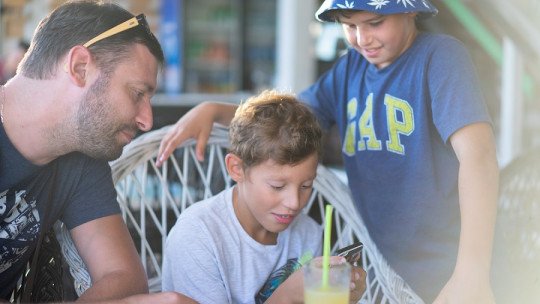
A study conducted in Philadelphia (United States) suggests that educators, particularly in elementary grades, should teach their students problem-solving skills and should provide them with opportunities to develop leadership skills to prevent relational aggression in the future.
The relational aggression It includes gossip and social exclusion to harm others, and is the most common form of aggression between girls.
Study tests the effectiveness of an aggression prevention program
A recent study was conducted by the Violence Prevention Initiative (VPI) at The Children’s Hospital of Philadelphia (CHOP) and states that Teaching leadership skills and providing opportunities for girls to develop leadership skills prevents relational aggression between girls
The study has been published in The Journal Psychology of Violenceand a random sample of African-American girls in third through fifth grade (children ages 8 to 11) has been used to test the effectiveness of the “Friend to Friend” aggression prevention program. F2F).
First violence prevention program that shows its effectiveness even one year after having carried it out
He F2F is the first and only aggression prevention program that shows its effectiveness in reducing relational aggressive behavior among girls and that, in addition, Your positive results continue even a year after finishing the program This program improves skills and knowledge in solving social problems and causes a decrease in levels of relational aggression.
“Including the learning of these types of skills in the school curriculum is important because the children who attend school, especially in marginal areas, have a serious risk of acquiring emotional and behavioral problems,” comments Dr. Stephen Leff, director of this study and co-director of the Violence Prevention Initiative (VPI).
“This is evidence that having problem-solving skills and having the opportunity to develop leadership capacity increases resilience and guides towards a better future in terms of social interactions. This positive approach is infused into the school-based prevention programs that are part of our Violence Prevention Initiative at Children’s Hospital of Philadelphia”Adds Dr. Leff.
A program that is more than a decade old
The team of researchers has been developing and redefining the program for a decade thanks to the different research it has carried out in the CHOP, in partnership with key community stakeholders. “This partnership approach has been used to develop the F2F program and to innovate the teaching modalities used in the program itself, such as drawings, videos or role plays,” says Brooke Paskewich, psychologist and director of the VPI.
In addition, it explains that “involving students, teachers and parents in the design of the program has helped ensure its cultural sensitivity, its adequate development and appropriate use for ethnic minorities.”
F2F, which was used in this study, is a 20-session program that was carried out for 40 minutes per session. Taught strategies for solving social problems and provided opportunities for girls to lead classroom sessions for their peers. A pilot study published in 2009 already advanced the effectiveness of the F2F program in reducing relational aggression among elementary school girls in two North American schools.
The current study included 144 aggressive girls (relational aggression) from 44 different classrooms belonging to the Philadelphia district. The subjects were randomly distributed between the F2F group and the control group to carry out the research.
Tips for designing a successful aggression prevention program at school
Dr. Leff, after analyzing the results of his study, offers the following suggestions for the design and evaluation of successful aggression prevention programs:








